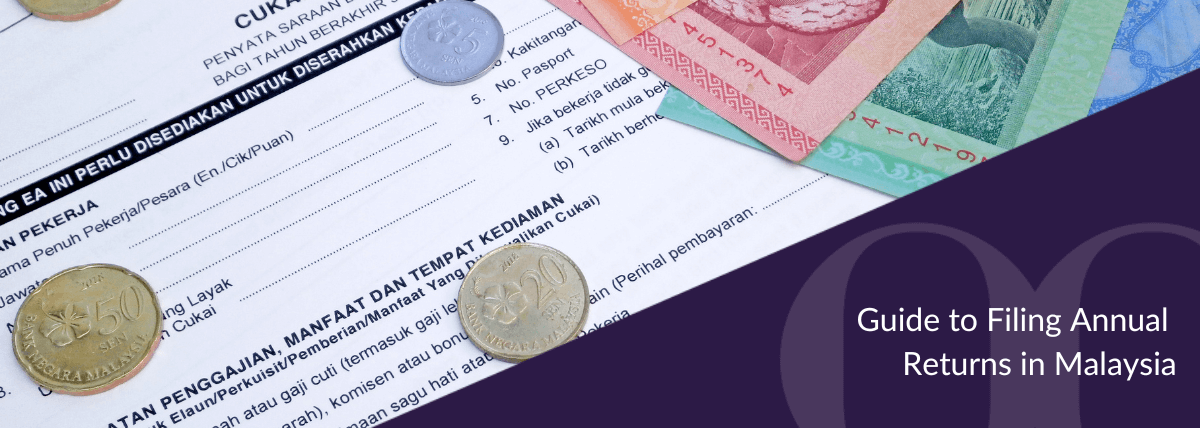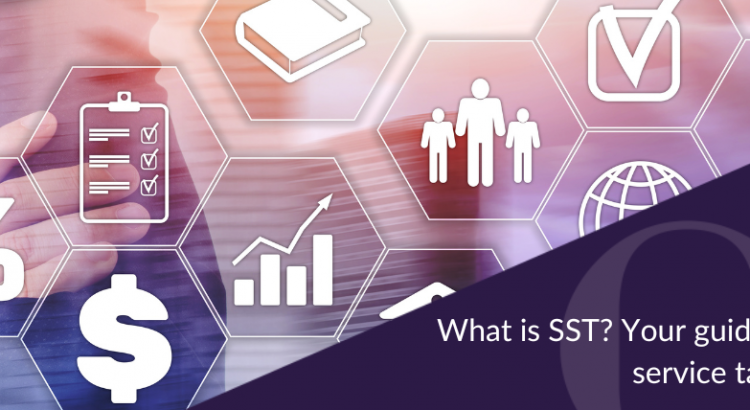If you are planning to expand your business into Malaysia, you are likely asking the question, What is SST?
SST refers to the Malaysian sales and service tax, where a sales tax is imposed at the manufacturer level, and a service tax is paid by consumers who are using taxable services.
Tax regulations are relatively fluid in Malaysia compared to neighbouring regions, which can make compliance challenging to maintain. This is why many growing businesses partner with a corporate services team who can help them navigate multi-country taxes as they evolve.
Read on as BoardRoom’s Tax Director for Malaysia, Cheong Woon Chee, provides an overview of how SST works, and what you can do as a taxable person to ensure compliance.
Did SST replace GST?
In 2018, the Malaysian Government reintroduced sales and service tax to replace the goods and services tax (GST), which reformed the local tax system.
“Many people actually believed that GST had increased the living cost since it was implemented,” Woon Chee says. “Therefore, the main objective of this abolishment was to put more purchasing power in the hands of the Malaysian people – especially the lower- to middle-income earners – which would result in a much higher disposable income.”
How SST works in Malaysia: definition and rates
SST is an indirect tax made up of the following components.
Sales tax
The sales tax component of SST is imposed on products manufactured and produced locally and on taxable goods imported into Malaysia. It is charged to consumers based on the purchase price of certain goods and services.
The sales tax is only imposed at one stage of the supply chain (at the time of the goods’ sale or disposal).
The sales tax rate in Malaysia ranges from 5%, 10% or another specified rate, depending on the type of goods.
Your business is required to pay SST if your total sales value of taxable goods has exceeded RM 500,000 in the past 12 months.
Service tax
The service tax is a consumption tax imposed on taxable services provided in Malaysia by a registered business.
The rate for service tax is 6% in Malaysia.
Your business is required to pay SST if your total value of taxable services within 12 months exceeds the prescribed threshold, which is usually RM 500,000. Some services have a different threshold (for example, the threshold for operators of restaurants and cafes is RM 1.5 million).

How to register for SST
If your business’s annual income has exceeded the respective thresholds for sales or service tax, you need to register for SST on the MySST website. A tax professional can assist you with this process.
Is there anything or anyone exempt from SST in Malaysia?
In Malaysia, services that are imported or exported are exempt from service tax, as are goods manufactured for export.
Other exempted goods include:
Manufacturers of non-taxable goods are exempt from SST, as are certain government bodies and educational institutions.
You can view complete lists of exempted goods, services and persons on the MySST website.
Exemption rules can be complicated, and the ramifications for tax evasion are severe. This is why it is a good idea to consult a tax professional who can help determine whether SST applies to your business.
Is SST different from company tax?
Another common question among businesses branching into Malaysia is, What is the company tax rate?
When it comes to understanding how to pay tax in Malaysia, business leaders should first learn the difference between SST and company tax.
While SST is imposed by the Royal Malaysian Customs Department, corporate tax is imposed by the Inland Revenue Board.
“Corporate tax is governed under the Income Tax Act 1967, which applies to all companies registered in Malaysia for chargeable income derived from Malaysia, including profits, dividends, interest, rentals, royalties, premiums, and other income,” Woon Chee explains.
Currently, the general rate for corporate income tax in Malaysia is 24%.

What is required of businesses to comply with SST?
All companies doing business in Malaysia – no matter their size – should do the following to ensure compliance with SST:
If your business is liable for SST, ensure that you:
Ensuring SST compliance can be an arduous process, which is why many businesses in Malaysia choose to engage a skilled corporate services provider for ongoing support.
What you may not know about Malaysian taxation
As a business leader, it is important that you stay aware of local taxation developments and discourse. With this knowledge, you will be able to make smarter decisions when it comes to company strategy and forward planning.
Some of the latest tax facts you should know include:
- In its first year of implementation, Malaysia’s digital services tax brought in more than RM 400 million for the government. With the uptake of digital tools and streaming services on the rise, this indirect tax is likely to provide a significant revenue stream for the government in the years to come.
- A tax exemption for SST on cars ended on 30 June 2022 after an extension was provided as part of the Malaysia Budget 2022. The exemption was introduced in 2020 to help automotive companies survive the impacts of the COVID-19 pandemic and also stimulate local economic growth.
- Malaysia’s tax regulations are in a near-constant state of flux. Malaysia’s 2023 budget is set to be retabled, meaning businesses must be ready to adapt to potential new tax requirements in the near future.
- Many companies find outsourced accounting and tax services benefit their business by ensuring they meet regulatory requirements, particularly as they grow and evolve.
Maintain SST compliance in Malaysia with the help of a tax professional
Navigating Malaysia’s tax landscape can be a complex and time-consuming exercise, especially for new businesses. In contrast to neighbouring countries, tax regulations and rates in Malaysia change so often that the tax research you performed at the start of your expansion journey may no longer be relevant just six months later, such as with the reintroduction of SST.
To ensure smooth and successful business growth, and to answer any of your questions about sales and service tax or otherwise, contact a local tax professional who can help ensure your Malaysian venture is fully compliant from the start.
Contact us to find out more.
Related Business Insights
-

08 Jul 2024
Guide to Filing Annual Returns in Malaysia
Ensure compliance and maintain your business's integrity in Malaysia with this guide on filing annual returns effic …
READ MORE -

24 May 2024
10 Advantages of Outsourcing Your Payroll Services
Explore the benefits of outsourcing payroll and discover how outsourced payroll providers like BoardRoom can stream …
READ MORE -

24 May 2024
IPO Application: A Guide to Listing Your Company in Malaysia
Navigate your IPO application in Malaysia effortlessly with BoardRoom's expert support and unlock opportunities on …
READ MORE




